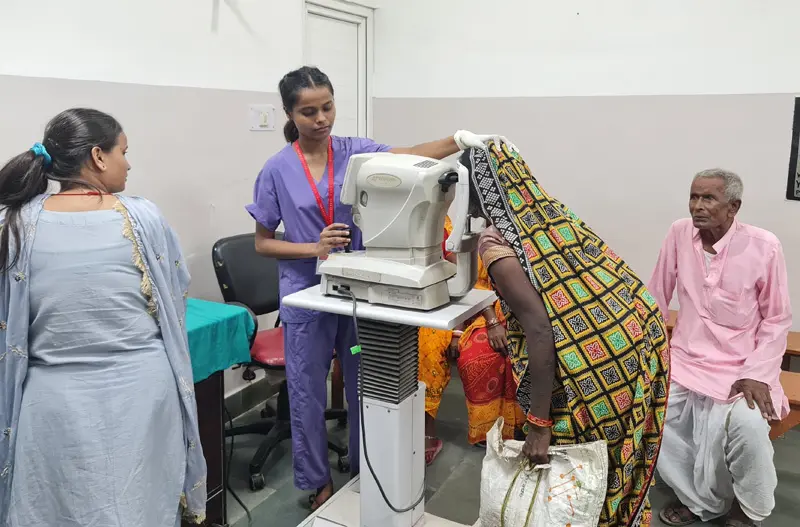
In rural Bihar, a fourteen-year-old girl guides her grandfather, blind from cataracts, along familiar paths. Her schoolbooks gather dust as she becomes his eyes, a story repeated across thousands of households where preventable blindness does not just steal sight, it steals futures.
The scale of this crisis refl ects deeper failures in the health system. Bihar needs roughly 500,000 eye surgeries each year, yet current capacity serves less than half that demand. Women account for a large share of people with visual impairment and often shoulder primary caregiving when family members lose sight, creating cycles that trap households in poverty and limit education.
Our NGO partner recognised this dual challenge and designed an integrated response that restores sight while empowering women to lead health care transformation in their communities. The approach brings together two linked interventions that address immediate need and long term change.
The cataract surgery programme reaches patients with the least access to care, providing procedures, transport, counselling, medicines, and follow-up care so restored vision translates into independence and household recovery. Outreach camps travel to remote hamlets, identifying those living in preventable darkness and off ering dignity alongside sight. When vision returns, caregivers resume their own lives, children go back to school, and families regain economic stability.
In parallel, a residential education pathway creates a clear route for rural girls to train as optometrists. With secure housing, mentorship, digital literacy, and job placement support, participants build clinical skills and confidence that extend beyond medical training. This approach creates multiplier effects across communities. As more optometrists enter the workforce, surgical capacity expands and the treatment gap narrows. As more girls step into professional roles, norms shift and opportunities widen.
Picture that same fourteen-year-old, now seventeen, confi dently discussing her career because she has seen what is possible. Her grandfather tends his small plot independently, her mother returns to tailoring, and her younger sister stays in school. Across Bihar, similar stories multiply as trained women establish eye clinics and girls remain in classrooms. This is systemic change through women’s empowerment, one restored vision and one empowered girl at a time.

